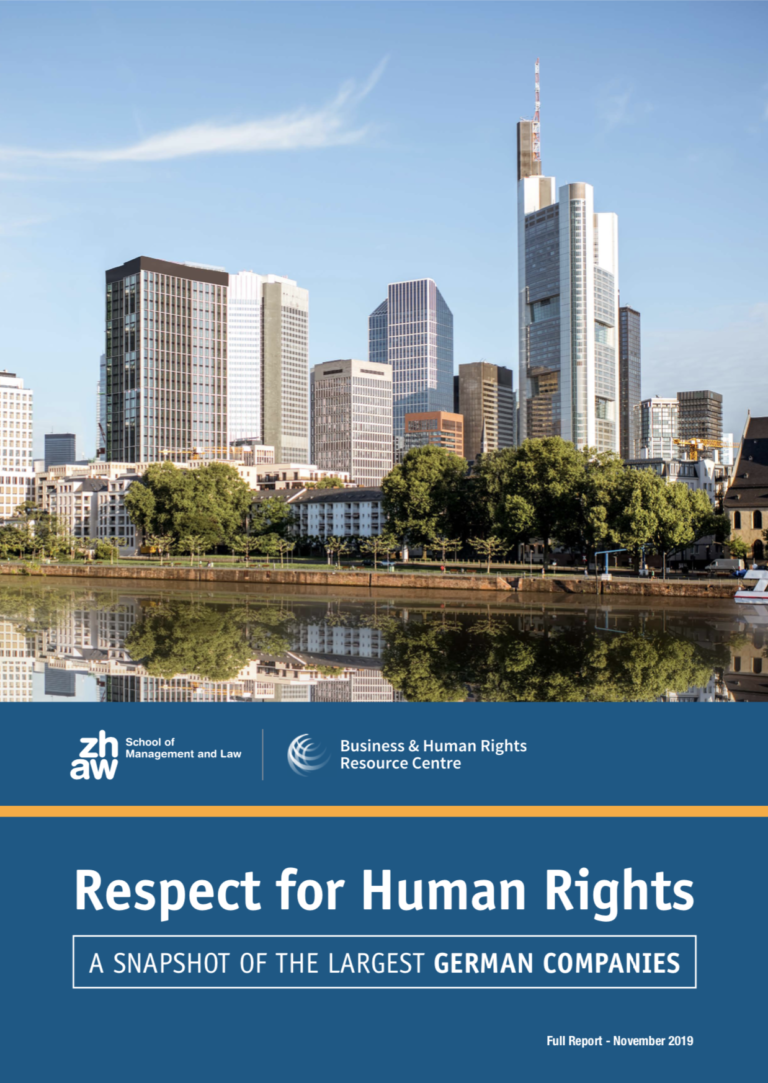The German government has set a 2020 target for at least 50% of German companies with more than 500 employees to have introduced effective human rights protections. The current coalition Government has agreed to pass laws and push for “EU-wide regulation” if companies’ voluntary implementation proves to be insufficient.
Respect for Human Rights: A Snapshot of the Largest German Companies assesses publicly available information fo r 20 German companie s based on core indicators from the Corporate Human Rights Benchmark (CHRB) methodology, applicable across all sectors. It covers three areas: Governance and policy commitments; embedding respect and human rights due diligence; and remedies and grievances mechanisms.
The study finds that 90% (18/20) of companies assessed failed to fully disclose how they manage their human right s risks sufficiently (due diligence). Just two companies, Daimler and Siemens, received points on all four indicators looking at human rights due diligence processes.
Almost half (8/20) the companies scored below 40% of the available 24 points. Companies with low scores overall included household names Deutsche Post DHL, RWE, and Deutsche Bank. Volkswagen scored 10 out of the available 24 points. Siemens was the highest scoring company with 60% (14.5) of the available 24 points.
This suggests the wider group of companies being assessed by the German government may fail its test. This could open the door to human rights due diligence legislation.

